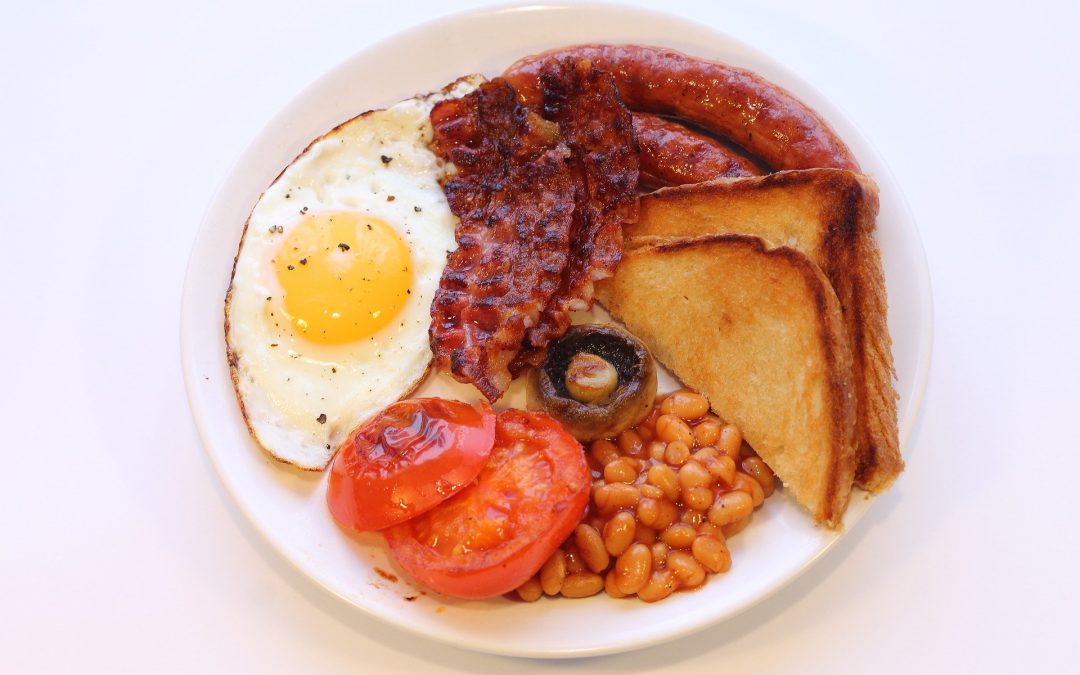According to a large study of more than 418,000 people in nine European countries, different types of food are linked to risks of different types of stroke. The study results we published this week in the European Heart Journal. Appart from being the largest study on this matter, it is also the first one that investigated ischaemic stroke (the one that occurs when the blood vessel in the brain is blocked by a ctot) and haemorrhagic stroke (the brain bleed) separately. Just to put this data into context- about 85% of strokes are ischaemic and 15% are haemorrhagic and stroke still remains the second biggest killer, right behind the cardiovasular diseases.
The study found that while higher intakes of fruit, vegetables, fibre, milk, cheese or yoghurt were each linked to a lower risk of ischaemic stroke, there was no significant association with a lower risk of haemorrhagic stroke. However, greater consumption of eggs was associated with a higher risk of haemorrhagic stroke, but not with ischaemic stroke.
SO, IS IT ABOUT WHAT YOU EAT OR HOW MUCH YOU EAT?
Apparently, it is all about having a balance. In Europe, 51.6% of adults are overweight. Being obese not only increases your risk of high blood pressure, heart disease and diabetes, but also makes you more likely to have a stroke, particularly if you are carrying extra weight around your stomach. There are several ways you can reduce body fat, including introducing more exercise, lowering your salt intake, cutting down on alcohol and eating a healthy diet that’s low in saturated fat, and high in fruit and vegetables.
A quick overview of some interesting stats:
-
Fruit and vegetables reduce stroke risk by up to 21%- Several studies have indicated that following a Mediterranean style diet is closely associated with reduced stroke risk.
-
Vitamin C reduces stroke risk by up to 19%- Whilst fruit and vegetables are also rich in a wide range of micronutrients and antioxidants, it’s Vitamin C that is directly linked with a 19% reduction in risk. Furthermore, it’s important that this water-soluble vitamin is absorbed from food, rather than supplements, to have any tangible benefits.
-
Olive oil reduces stroke risk by up to 18%- Olive oil has become a popular alternative to butter and offers many health benefits, not least of which is related to stroke. One study found that eating an extra 25 grams of olive oil could equate to reduced risk of up to 18%.
-
Sweet drinks increase stroke risk by up to 16%- Sugar has hit the headlines in recent years due to the rise in obesity, especially in younger people, worldwide. Consuming less sugary foods not only helps to control weight and manage diabetes; it also lowers your risk of stroke. One study found consuming just one less sugar-laden, fizzy drink per day could reduce the chance of suffering a stroke by as much as 16%.
-
Trans-fats increase stroke risk by up to 13%- It makes sense that a healthy diet shouldn’t be high in fat. But it’s the type of fat that seems to be more crucial when it comes to stroke. Polyunsaturated fats, as found in fish oils, are widely known to reduce your risk. While trans-fats, common in cakes, pies and biscuits, have been associated with an increased risk of stroke in men – up to 15%, according to one source.
-
Red and processed meat increases stroke risk by up to 17%- Research shows, the more meat we eat; the higher our risk of stroke. Red meat (increased risk by 11%) contains large amounts of saturated fat, which is linked with higher cholesterol, another risk factor for stroke.
HOW RELEVANT IS THIS?
If you look into the World Stroke Organization „Global Stroke Fact Sheet“, there are over 13.7 million new strokes each year and globally, one in four people over age 25 will have a stroke in their lifetime. Also, we know now that just in Europe, around 9 million people live with the consequences of stroke and this doesn’t affect only individuals- it’s a life-changing event for the whole family.
Note: This blog post is currently available only in English language.
Image by Łukasz Cwojdziński from Pixabay

